How Behavioral Health Services Support Individuals with Eating Disorders
Supporting Recovery: The Role of Behavioral Health in Eating Disorder Treatment

Understanding How Behavioral Health Services Aid Individuals with Eating Disorders
Eating disorders are complex mental health conditions that deeply affect individuals’ physical health, emotional well-being, and social functioning. Behavioral health services play a vital role in supporting those affected by these disorders through a multi-faceted approach that includes therapy, medical care, nutritional guidance, and ongoing support. Recognizing the importance of early detection and personalized treatment plans, these services aim to foster recovery, improve quality of life, and prevent relapse. This article explores how behavioral health resources and therapies support individuals with eating disorders, the types of disorders treated, available treatment options, and the significance of education and research in advancing recovery.
Types of Eating Disorders and Their Impact
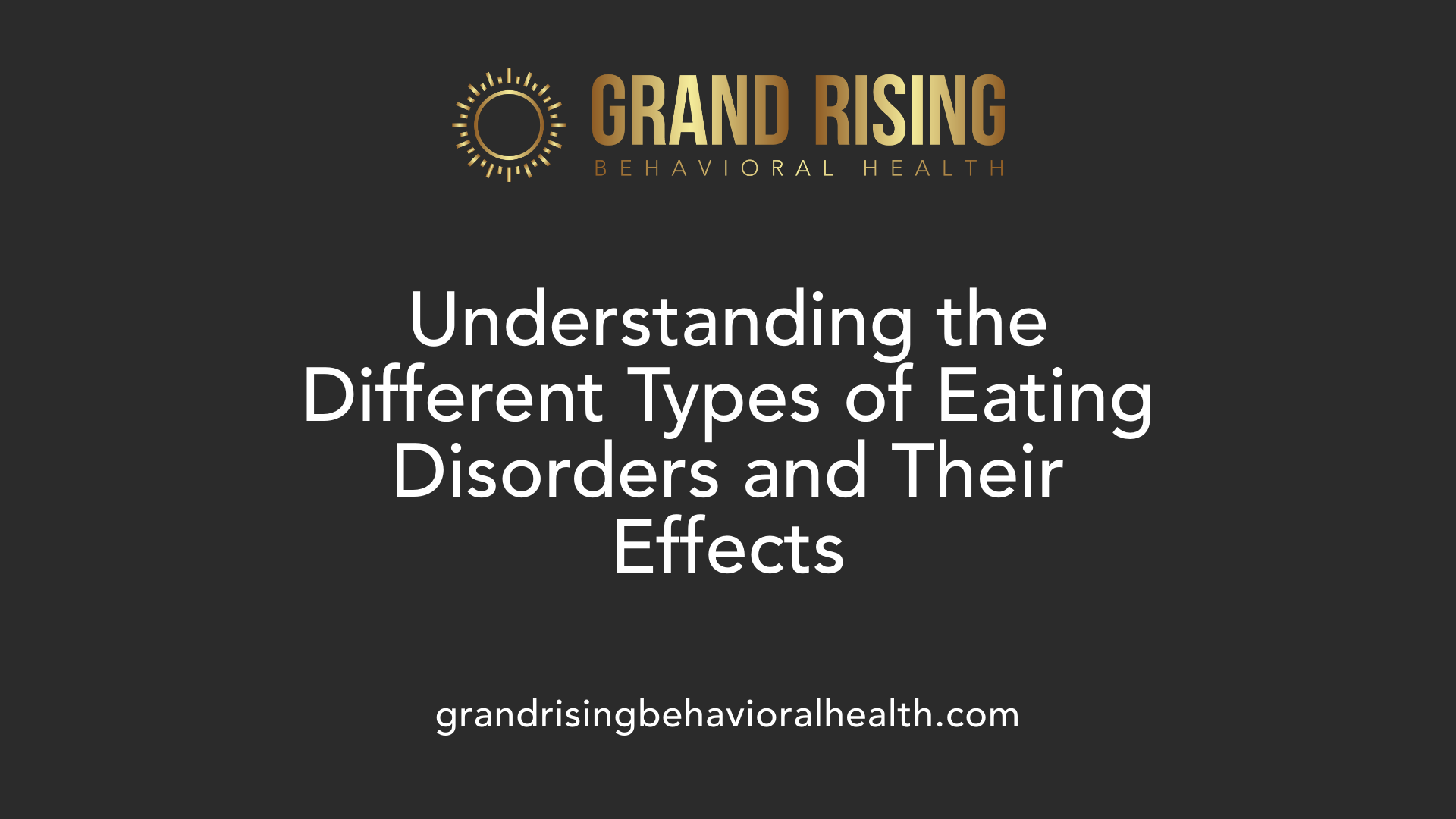
What types of eating disorders are there?
Eating disorders encompass various mental health conditions characterized by problematic eating behaviors. The most common include anorexia nervosa, bulimia nervosa, binge-eating disorder, and avoidant restrictive food intake disorder (ARFID). Each disorder manifests with distinct symptoms and requires tailored treatment approaches.
- Anorexia Nervosa involves severe calorie restriction, leading to significant weight loss and a distorted self-image.
- Bulimia Nervosa features cycles of binge eating followed by purging behaviors like vomiting or misuse of laxatives.
- Binge-Eating Disorder is marked by recurrent episodes of consuming large quantities of food without subsequent purging.
- ARFID entails restrictive eating that results in nutritional deficiencies, not rooted in body image concerns.
How do eating disorders affect individuals?
Eating disorders significantly disrupt physical health and emotional well-being. They can cause serious medical complications, including organ damage, osteoporosis, and cardiovascular issues. Mentally, they are often associated with depression, anxiety, and obsessive-compulsive behaviors. The impact extends across all ages, genders, and backgrounds, making awareness and early intervention critical.
What are the signs and symptoms?
Recognizing eating disorders involves noting various behaviors and physical signs. Common indicators include an intense fear of gaining weight, extreme dieting or food restriction, binge episodes, purging, and excessive exercise. Some individuals misuse laxatives or diuretics, or exhibit preoccupation with body shape and weight. Physical symptoms may include weight fluctuation, dental erosion, sore throat, and gastrointestinal issues.
Why is accurate diagnosis important?
Proper diagnosis is crucial for developing effective, personalized treatment plans. It helps in addressing both physical health risks and psychological factors contributing to the disorder. Accurate diagnosis reduces the chance of inappropriate treatment, minimizes health complications, and boosts the likelihood of recovery. Healthcare providers typically employ clinical evaluations, behavioral assessments, and medical tests to ensure correct diagnosis.
| Disorder Type | Main Features | Treatment Approach | Associated Risks |
|---|---|---|---|
| Anorexia Nervosa | Severe calorie restriction, low BMI | Refeeding therapies, psychotherapy, medications | Heart failure, osteoporosis, organ damage |
| Bulimia Nervosa | Bingeing and purging | Cognitive behavioral therapy, medication, nutritional counseling | Electrolyte imbalance, gastrointestinal issues |
| Binge-Eating Disorder | Recurrent binge episodes | Therapy, medication, support groups | Obesity, diabetes, cardiovascular disease |
| ARFID | Food restriction, nutritional deficiency | Nutritional therapy, behavioral interventions | Malnutrition, growth delays (in children) |
Understanding the distinct features and impacts of these disorders underscores the importance of early detection and specialized treatment. Support from health professionals, family, and peer groups plays a vital role in recovery.
Support and Resources Offered by Behavioral Health Services
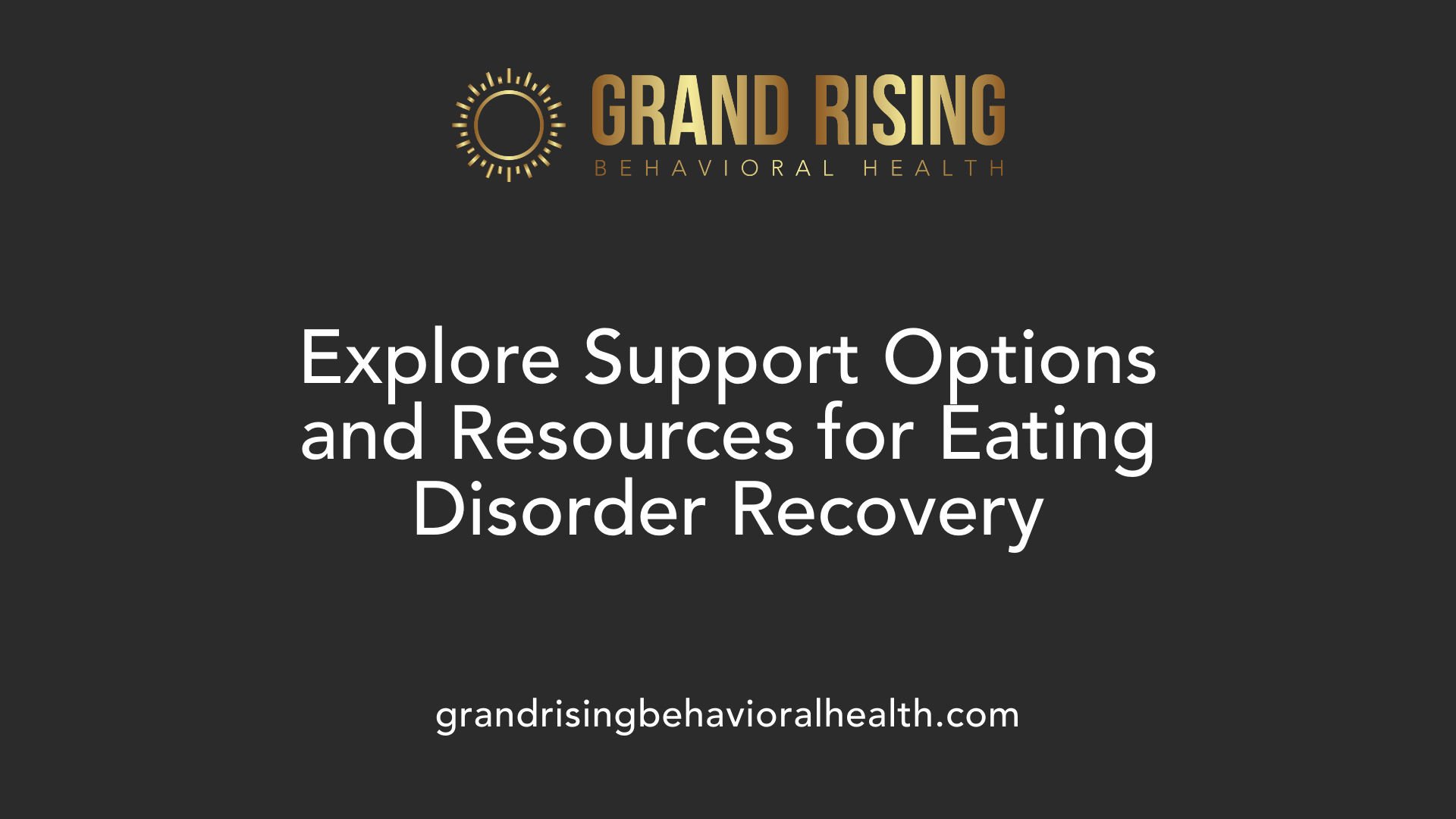 Support for individuals with eating disorders encompasses a variety of treatment options designed to address both psychological and physical aspects of the illness. Psychotherapy remains a cornerstone, especially cognitive-behavioral therapy (CBT), which helps modify negative thought patterns related to body image and eating behaviors. Medical care is essential for monitoring health complications and stabilizing physical health, while nutritional counseling provides guidance on establishing healthy eating habits and correcting disordered nutritional patterns.
Support for individuals with eating disorders encompasses a variety of treatment options designed to address both psychological and physical aspects of the illness. Psychotherapy remains a cornerstone, especially cognitive-behavioral therapy (CBT), which helps modify negative thought patterns related to body image and eating behaviors. Medical care is essential for monitoring health complications and stabilizing physical health, while nutritional counseling provides guidance on establishing healthy eating habits and correcting disordered nutritional patterns.
Medications, such as antidepressants or antipsychotics, may be prescribed when co-occurring conditions like anxiety or depression are present, helping to manage emotional symptoms and support overall treatment. In addition to direct medical interventions, peer support groups and community programs play an important role. These groups offer emotional comfort, shared experiences, and a sense of belonging, which can motivate recovery.
Family involvement is also crucial, with family therapy helping loved ones understand the disorder and participate actively in the healing process. Support organizations like the National Eating Disorders Association (NEDA) provide valuable resources, including screening tools to identify early signs of eating disorders, awareness events such as NEDA Care Fairs and webinars, and educational content that helps individuals and families learn about eating disorder types, symptoms, and treatments.
Community and online resources extend the reach of professional help by offering accessible avenues for connection and information. They enable a supportive environment where individuals can share their journeys, find comfort, and reduce feelings of stigma and isolation. These channels serve as vital complements to clinical care, fostering a comprehensive support network that encourages recovery and resilience.
For those seeking further assistance or information, searching for resources related to eating disorder support and recovery, such as local support groups, online forums, or professional services, can be a helpful next step. The combination of professional treatment, community engagement, and continuous education significantly enhances the chances of recovery from eating disorders.
Therapeutic Approaches and Levels of Care
Various evidence-based therapies are used to treat eating disorders, tailored to individual needs and severity. Cognitive Behavioral Therapy (CBT), particularly CBT-E, aims to change negative thought patterns and behaviors associated with eating disorders. This therapy is designed to target core psychopathology, helping patients normalize their eating habits and improve mental health.
Family therapy, such as the Maudsley approach, involves close family members in recovery, providing support and fostering healthier family dynamics. Dialectical Behavior Therapy (DBT) focuses on emotion regulation, distress tolerance, and interpersonal effectiveness, especially useful for patients with co-occurring emotional regulation issues.
Other approaches include Specialist Supportive Clinical Management (SSCM), which offers practical support and psychotherapeutic elements, and F.E.A.S.T.'s parent-focused strategies that empower caregivers to assist in recovery.
Depending on how severe the disorder is, treatment settings can vary widely. Outpatient therapy is suitable for mild cases, allowing patients to remain at home while attending therapy sessions. Intensive Outpatient Programs (IOP) provide structured therapy and meals during the day, ideal for managing ongoing symptoms.
Partial Hospitalization Programs (PHP) offer a higher level of care, typically running five days a week with comprehensive medical and psychological treatment, including group therapy, individual counseling, and medical monitoring. In more severe cases, inpatient hospitalization may be necessary, providing round-the-clock medical care and support.
This multi-tiered approach ensures that individuals receive appropriate treatment intensity, maximizing their chances of recovery and helping them build healthier relationships with food and their bodies.
The Role of Family and Community in Recovery
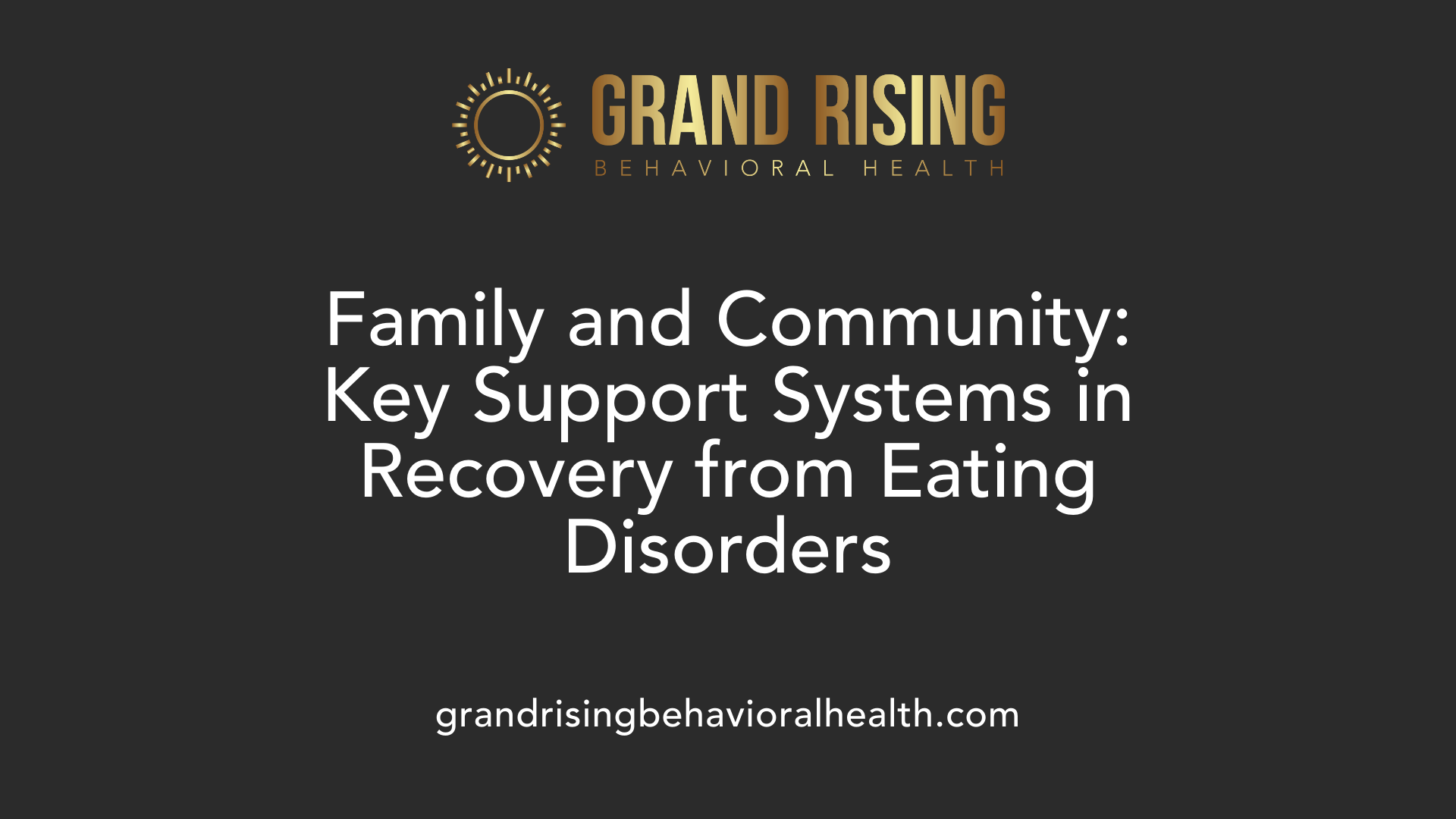
How do therapists support individuals with eating disorders?
Therapists play a vital role in the recovery process by employing evidence-based therapies such as cognitive behavioral therapy (CBT) and dialectical behavior therapy (DBT). These approaches help individuals change distorted thoughts, emotional responses, and unhealthy behaviors related to food and body image. In many cases, therapists work closely with clients to develop personalized treatment plans and involve family members whenever appropriate. Family support can significantly improve treatment outcomes, especially for adolescents.
Why is family involvement crucial?
Family involvement is a cornerstone of effective treatment, particularly for younger individuals. Family therapy educates loved ones about eating disorders, helping them understand the psychological and physical challenges faced by the affected person. It provides families with tools to support their loved one’s recovery, create a nurturing environment, and reduce misunderstandings or conflicts surrounding food behaviors. Empowered families can foster a sense of safety and encouragement, which promotes long-term recovery.
What community resources are available?
Community programs and support groups are essential for ongoing recovery and maintaining mental health. Organizations like the National Eating Disorders Association (NEDA) host events such as webinars, awareness campaigns, and support groups that bring affected individuals and their families together. These resources foster understanding, offer peer support, and provide education about managing relapse risks. Local community programs and national organizations help individuals build a network of support beyond clinical settings, encouraging sustained recovery.
| Aspect | Details | Additional Info |
|---|---|---|
| Family Therapy | Focuses on educating and empowering families for supportive care | Especially effective for adolescents and young patients |
| Community Programs | Support groups, webinars, awareness events | Offer ongoing support and education for individuals and families |
| Support Resources | Organizations like NEDA, F.E.A.S.T., NAMI | Provide resources, counseling, and peer support options |
Understanding the integral role of family and community creates a supportive environment essential for enduring recovery from eating disorders. These elements complement clinical treatments, reinforce healthy behaviors, and foster resilience.
Importance of Education, Research, and Specialized Programs
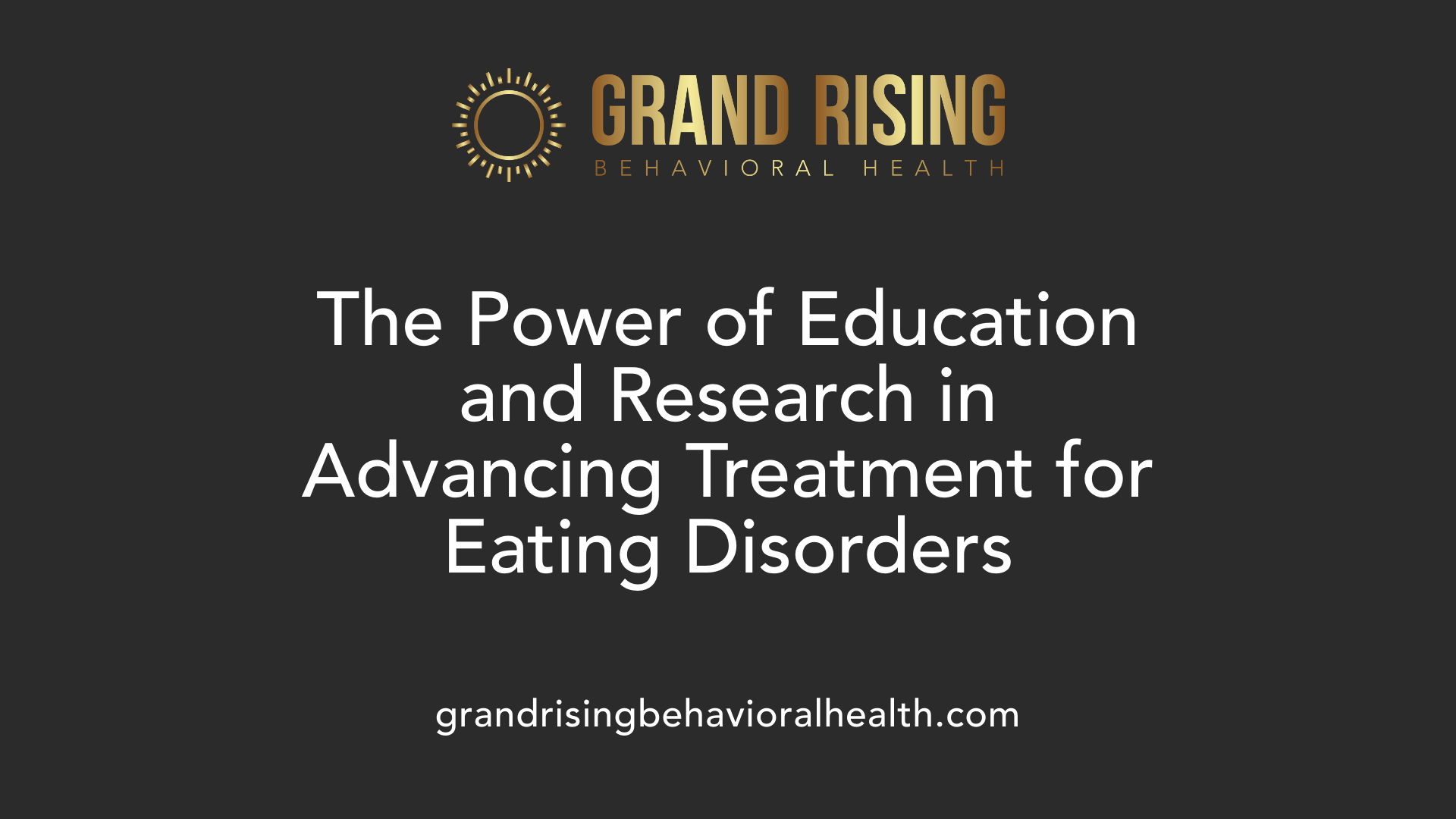 Raising awareness about eating disorders is vital to reduce stigma and enable early diagnosis. When more people understand that these conditions are serious mental illnesses and not choices, it encourages individuals to seek help sooner, which improves recovery prospects.
Raising awareness about eating disorders is vital to reduce stigma and enable early diagnosis. When more people understand that these conditions are serious mental illnesses and not choices, it encourages individuals to seek help sooner, which improves recovery prospects.
Ongoing research plays a crucial role in supporting effective treatment approaches. Advances in understanding the genetic, neurological, and behavioral aspects of eating disorders inform the development of personalized therapies. This research helps refine existing treatments and explore new options, such as innovative medications and therapeutic techniques.
Specialized programs are essential in delivering comprehensive care tailored to individual needs. These programs integrate medical, psychological, and nutritional support, often employing multidisciplinary teams. By incorporating the latest evidence-based evidence, such as family-based therapy for adolescents and dialectical behavior therapy for emotion regulation, they promote better recovery outcomes.
Accessing quality education, supporting research, and expanding specialized treatment options are all interconnected efforts that significantly enhance the support system for individuals battling eating disorders. They foster hope, transform recovery pathways, and drive continuous improvements in care.
Getting Help and Moving Toward Recovery
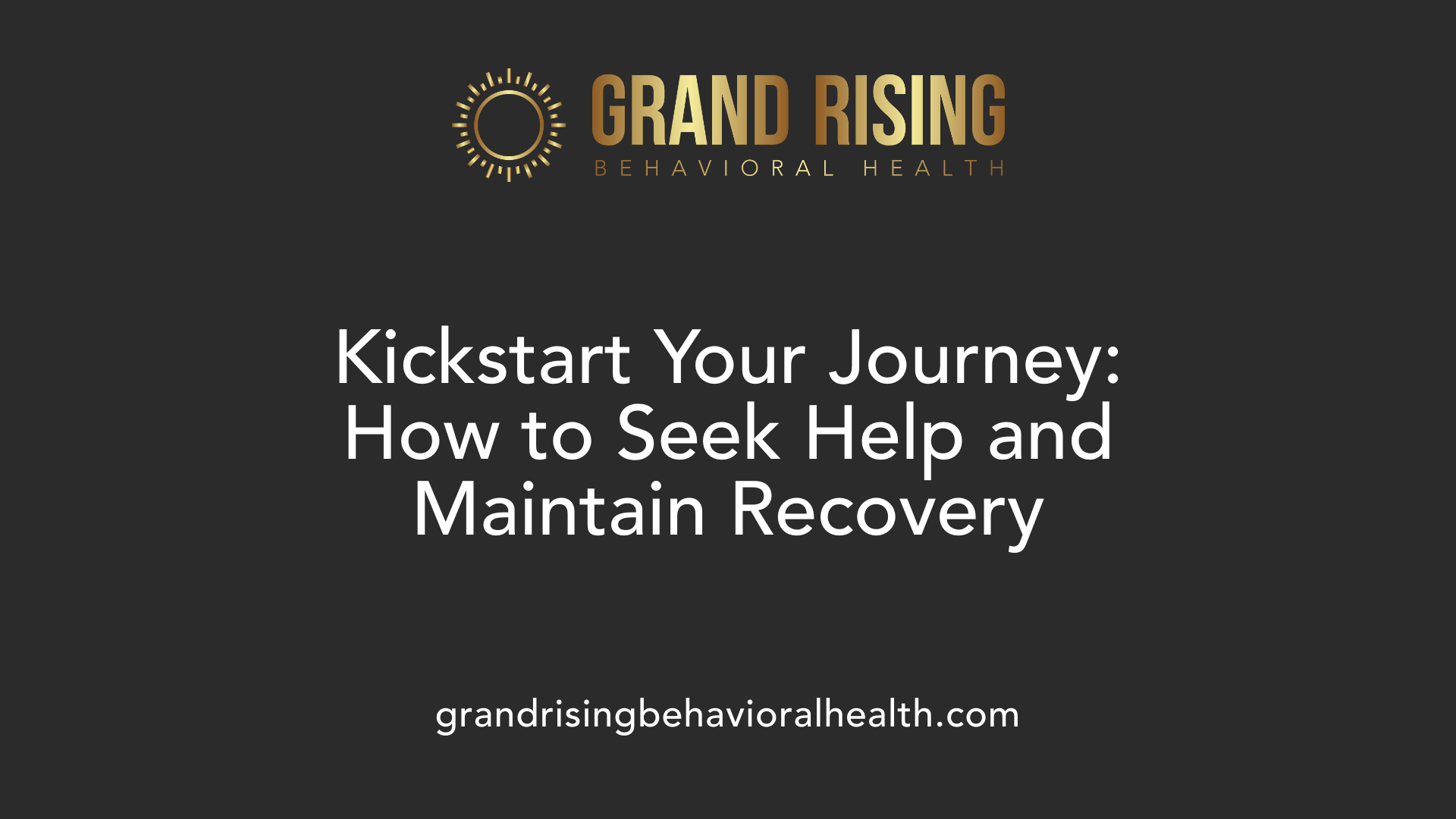
How can individuals seek help?
Recognizing the need for support is the first step on the path to recovery from an eating disorder. Individuals can begin by consulting healthcare professionals such as primary care doctors, mental health specialists, or nutritionists who are experienced in treating these complex conditions.
Confidential online screening tools are also available and can be a helpful starting point. For example, NEDA offers an eating disorder screening tool for ages 13 and up, which can help determine if professional help is needed. Additionally, reaching out to support organizations like NEDA, ANAD, or F.E.A.S.T. provides valuable resources, educational materials, and guidance.
Support networks extend to community resources, support groups, and online communities. These platforms offer understanding, shared experiences, and encouragement that are vital for ongoing recovery.
What are the available support options?
Support options for individuals with eating disorders encompass various levels of care tailored to severity and individual needs. Outpatient therapies including individual, group, and family counseling focus on addressing emotional, behavioral, and nutritional challenges.
For more severe cases, inpatient hospitalization or residential treatment may be necessary to ensure safety, especially when medical complications or severe symptoms are present. Programs that offer medical management, nutritional counseling, and psychiatric support provide a comprehensive approach.
In addition, community and online support groups foster continuous encouragement, provide education, and help maintain motivation throughout recovery.
Why is ongoing support essential?
Recovery from an eating disorder is a long-term process that requires continuous effort and support. Ongoing monitoring helps detect early signs of relapse and address them swiftly. Regular follow-ups with healthcare professionals and participation in support groups help reinforce healthy behaviors and coping strategies.
Relapse prevention is critical, as eating disorders can often reoccur, especially when stressors and triggers re-emerge. Sustained social support from friends, family, and community resources makes a significant difference in maintaining progress.
In summary, seeking help is a vital initial step, and sustained, comprehensive support is essential for lasting recovery. Combining professional treatment with ongoing social and emotional support increases the likelihood of overcoming these serious illnesses.
Empowering Recovery Through Comprehensive Behavioral Health Support
Supporting individuals with eating disorders requires a comprehensive, personalized approach that integrates evidence-based therapies, medical care, family and community involvement, and ongoing education. Behavioral health services provide a vital framework that addresses psychological, physical, and social aspects of these conditions, offering hope and pathways to recovery. Continued research and specialized programs ensure that treatment remains effective and accessible, fostering resilience and well-being for those affected. Raising awareness and promoting early intervention are key to improving outcomes and helping individuals regain control of their lives.
References
- NEDA | Eating Disorders Support, Awareness & Recovery
- Eating Disorders: What You Need to Know
- Eating Disorder Treatment - OSF HealthCare
- Eating Disorders: What They Are, Symptoms, Treatment & Types
- How to help someone with eating disorder - NHS
- What are Eating Disorders? - Psychiatry.org
- Eating Disorders Resources for Families - UPMC
- Eating Disorders - National Institute of Mental Health (NIMH)
- What are Eating Disorders? - SAMHSA
- Eating Disorders Program - Edward-Elmhurst Health
More Resources
A team ready to start your journey.
Get in touch — today.
We are a safe space – a haven for exceptional individuals to receive discreet, personalized, in-person treatment and care.
.avif)










